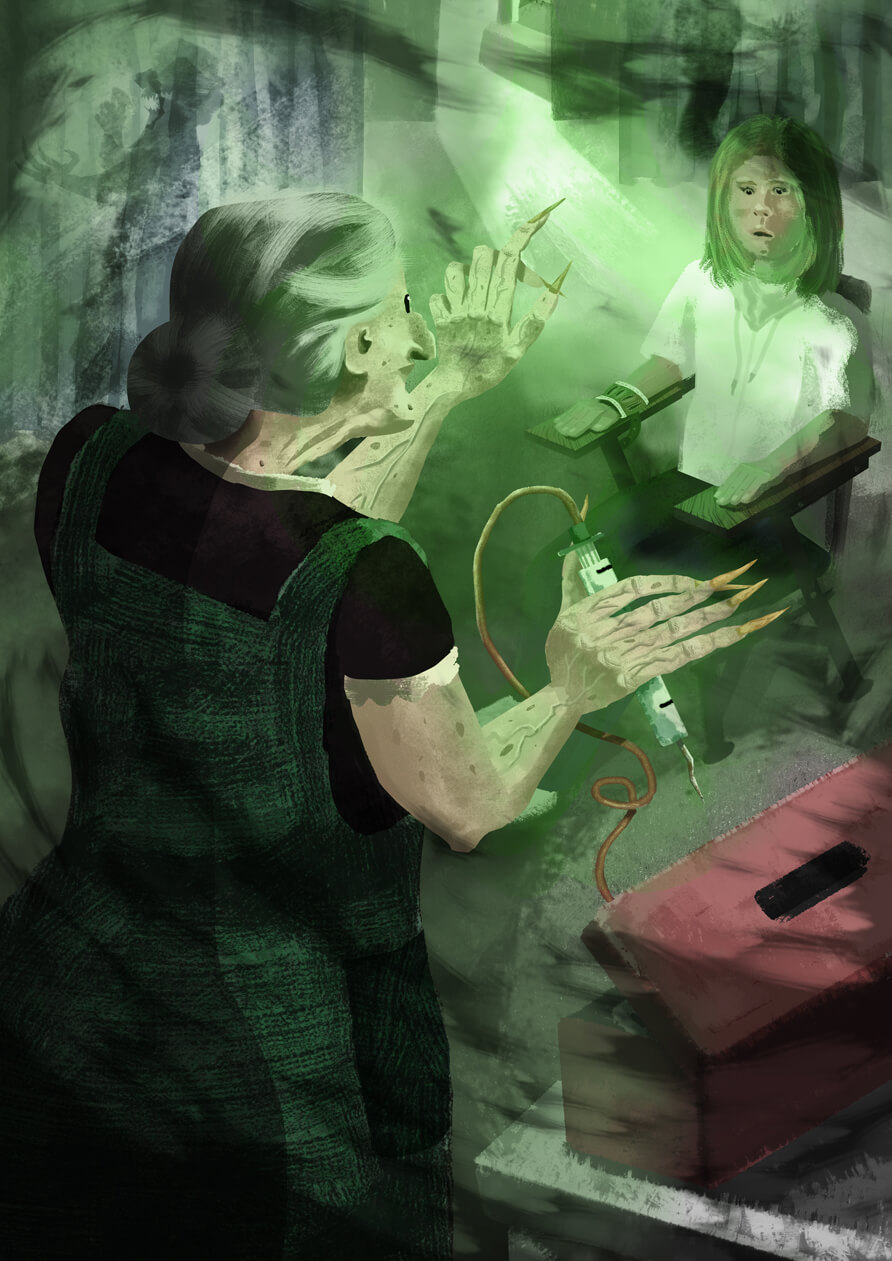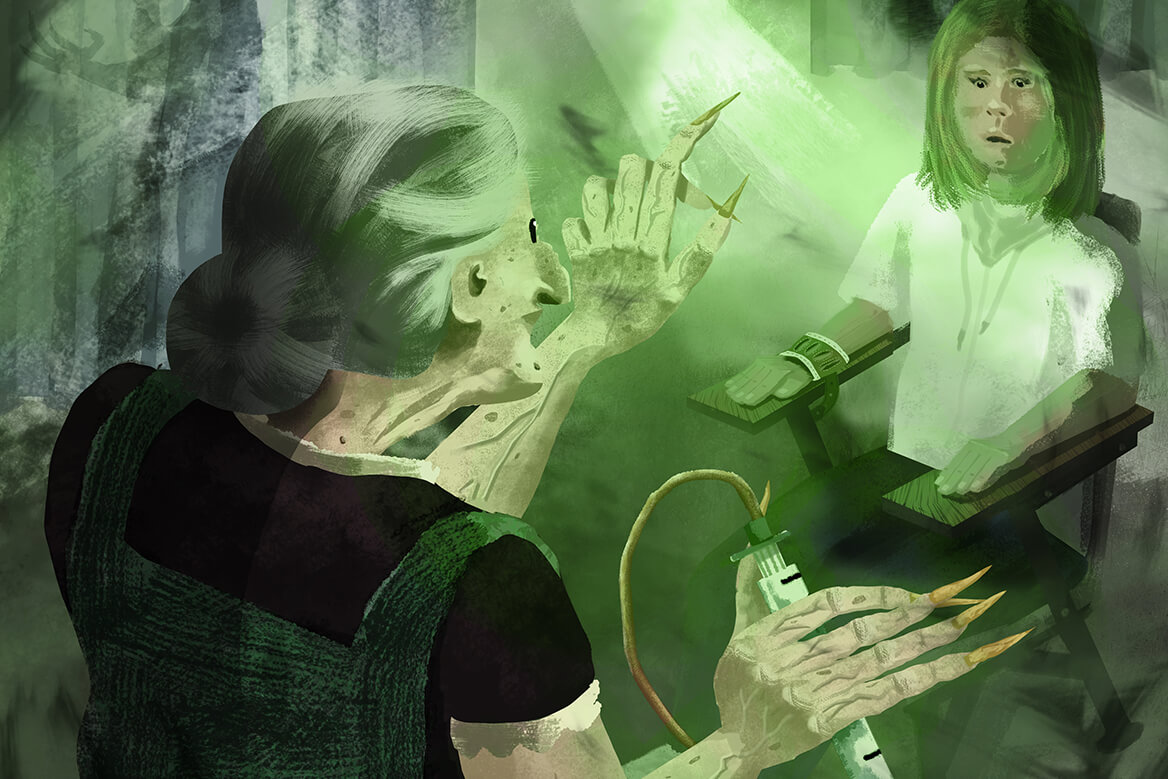Please note: this story was provided by the author and published as is.
Ana wanted to change the world.
But even the most accomplished middle-schooler (which she was) had to settle for small victories. Getting her family into recycling. Standing up to a bully. Reminding a grownup that people don’t use that term anymore.
Ana once organized a dozen classmates to make posters supporting the Black Lives Matter movement – even though she didn’t totally understand the history of it all. Or why we needed to protest for basic human kindness anyway. Her mom was especially proud of that one. Ana remembered the big kiss she planted on her forehead, and the first time her mother called her “a helper.” Her teacher just criticized her handwriting.
Ana was the one who brought a garbage bag whenever she played soccer in the park with her friends. For a while, Kendall would help her pick up litter before and after the game, but even she grew bored of it – instead finding her calling in classroom gossip and fantasy dating scenarios.
So Ana would change the world on her own.
Spring in small town Oregon was beautiful but boring. The rain opened sweet-smelling blossoms. Outdoorsy people swarmed up the hills and down the trails. Ana’s friends mostly went to the matcha shop and hung out in the park. She was invited less and less. For a while, Ana was spending two afternoons a week with an elderly neighbor, Mrs. Adler, reading books and hearing stories about being almost famous on Broadway. But Mrs. Adler got sick. And within a couple of weeks, Mrs. Adler died.
With the sort of kindness needed in tough times (the divorce, when they had to put Molly to sleep), Ana’s mom gave her five dollars for a treat, and permission to walk into town. Her first thought was the matcha shop, where her friends would be laughing and flirting, enjoying a few precious minutes of unsupervised behavior. But when she looked through the exterior glass and saw Queen Kendall holding court, she just felt out of place. So she handed her money to the homeless guy playing guitar out front, turned on her heels, and walked aimlessly up the street.
Past the bookseller. Past the ice cream shop. Past the record store where the weird old guy played super good music.
“You Can Help” read the sign, askew on a light pole. It was at her eye level, partially hidden by a bush. It wasn’t some mass-printed thing that got stapled to telephone poles and community bulletin boards. It was handwritten, in an almost obsessive hand. Even her teacher wouldn’t find a flaw. And below the headline was written: “Today. Elk’s Lodge. Basement Level. Children’s Blood Drive.”
Ana’s mom was a nurse, and had helped out at blood drives before. She’d told Ana about them, and more than once she mentioned that they gave you free cookies at the end. She spoke fondly about the donors. “Selfless people, from all walks of life, who wanted to help.” The Elk’s Lodge was just up the street. Ana wanted to help.
By whatever force that compelled her to clean when her friends were flirting, Ana made the last block to the Lodge. She’d seen the building before though never really looked at it. Three stories of blue-painted brick, peeling in places. Black trim on the windows and doors. Neglected planters. A wobbly wooden sign with a carved elk’s head. No sign of life.
The frosted glass doors out front had a simple taped sign in the same meticulous hand she’d seen before. It read “You Can Help.” Ana pushed open the doors with a creak and followed the dimly lit foyer to a basement stairway. Greenish light and sounds of activity spilled upwards, and Ana’s sense of duty overcame her sense of discomfort. She drew a long breath and took the first. Step. Down.
At the barely inaudible tap of her toe upon the stair, a head poked around from the landing below. A woman. An older woman. She was maybe in her 70s or 80s, with a big, earnest smile and the rosiest of cheeks. She wore a pastel smock kind of like the one Ana’s mother wore at work. She reminded her of Mrs. Adler.
“Child, welcome!” the old woman spoke, waving Ana down the stairs. “And thank you for coming. Thank you for having such heart for people in need. Is your mommy or daddy with you?”
Ana shook her head. The old woman smiled.
“Such a brave one too! Is this your first time giving blood?”
Ana nodded. The old woman smiled broader. She had those big, perfect, unnatural teeth that looked like Mrs. Adler’s dentures. Ana hated Mrs. Adler’s teeth, but was ashamed of herself for doing so. She was ashamed of herself for hating this lady’s teeth too.
“We have cookies at the end,” the woman teased, “As many as you want. Don’t be nervous. Come down now.”
The old woman ushered Ana downstairs and around the corner into a large windowless basement. Greenish light spilled out of struggling fluorescent tubes, barely reaching the shadowy corners of the space. A dozen or so privacy curtains divided the room, between which a handful of older women – more or less of the same size and shape as not-Mrs. Adler – moved among the hidden donors. Ana heard the occasional whisper of conversation, and the occasional reassuring “hush hush.”
Up front was a sort of reception table, some indistinguishable pamphlets, and a messy pile of stickers. The old woman gestured toward the stickers. Ana meekly shook her head.
As they rounded the table and followed the pathway between the privacy curtains, Ana felt the urge to keep her eyes directly forward. She ignored the old women in pastel smocks whispering to their young patients. Ignored the tiny legs pointed toward her. Maybe this was out of courtesy to those kids donating blood, who may be feeling vulnerable and maybe a little scared. Maybe it’s because Ana was a little scared herself. She’d never given blood before. So she ignored the bare feet, covered in cuts and mud. She wasn’t exactly afraid of needles but she sure didn’t like them. And she ignored the crying. Maybe she should talk to her mom before –
Ana must have slowed her pace a bit because she felt a hand grasp hers and pull her forward. The old woman looked back, smiling, urging Ana toward a station in the far corner of the room. Her hand was plump but delicate, like Mrs. Adler’s. The skin felt thin. Cold. And as the old woman turned back toward their destination she spoke, almost to herself.
“Uncommon, these days. Helpers like you. Warm souls. So much life left to give. Up you go …”

Art by Anonymous
The old woman gestured into the simple blood draw station, and a metal chair kissed by greenish light. A thin plank was attached to each armrest, making it wider and longer. Next to the chair was a simple metal desk and what looked like a toolbox.
Ana didn’t really register climbing up into the chair, or taking off her shoes. She didn’t protest (or even pay attention to) the old woman tying her right arm to the plank. Not-Mrs. Adler’s whispers seemed to smooth out the edges of time, like those glorious drowsy moments between asleep and awake. But Ana saw the needle. It was long and threatening, steel tarnished with flecks of rust. At its plunger end was a brown rubber tube, made opaque with some rusty clots within. The tube ran into the toolbox, like the long tongue of a lizard snatching flies.
“You’ll help so many of us …” the old woman droned, “so helpful, your life. Your blood. Don’t be nervous. Just a little pinch …”
Ana felt the urge to watch the old woman do her work. Her plump, fragile fingers found Ana’s vein, and massaged it eagerly. With a smile and practiced movement, Not-Mrs. Adler pricked into her young skin, lifting it slightly as the point of the needle wriggled into her meat. It looked like a metal worm, burrowing. Then a spurt of warm red blood as the needle found purchase.
“… you may feel a little light-headed. Things may look a little funny. It’s normal, when you give us this gift …”
As if on command, Ana’s stomach lurched, and her forehead was dotted with sweat. Her vision grew shallow and the room began to lean impossibly one way, then the other. The needle seemed to come alive, drinking eagerly from Ana’s body. She tried to speak but found she could not, instead turning toward the old woman with a pitiful, terrified glance.
Except Not-Mrs. Adler had since gone, along with her veneer of kindness and her fake grandmotherly warmth.
Ana’s eyes followed the wriggling metal needle up past the rubber tubing, which now pulsed with its own glistening veins. It connected to an oversized head — insect-like and alien — and entered a hole ringed in perversely large, unnatural teeth, each the size of a coaster. Its gums were brown-black with a tar of blood and bile, partially concealed by thin-stretched lips. And around these, thick bristles of hair bunched in scraggly patches, twitching in time with the creature’s thirst. Before Ana could scream, the darkness in her peripheral vision overtook her entirely.
Kendall found Ana unconscious on a park bench early that evening. She called Ana’s mother, who broke away from work and listened with horror as her exhausted daughter recounted a story too impossible to believe. They notified the police, of course, who finally relented and offered to investigate. But there was no sign of a blood drive. The Elk’s lodge itself was a dead end, closed for renovations that never came. With a shrug the cops came and went, giving Ana a demoralizing pat on the head. While they agreed hers certainly was “a scary story,” the stale cookie Ana had discovered in her pocket was hardly evidence of a crime.

